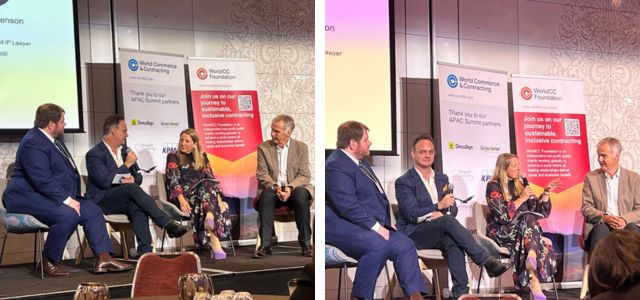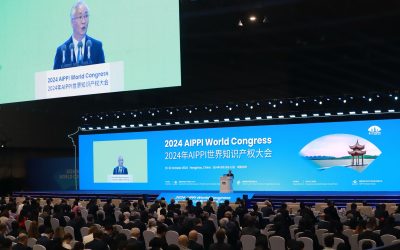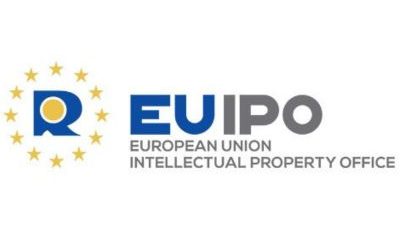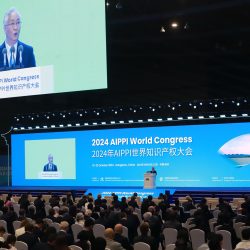Amidst engaging dialogues held at the World Commerce & Contracting (WCCC) conference in Melbourne this month, the potent impact of Artificial Intelligence (AI) implementation has emerged as a compelling subject of reflection and dialogue for the legal profession including Intellectual Property Lawyers.
As the legal and business landscapes continue to evolve, it becomes increasingly evident that Artificial Intelligence (AI) is not a fleeting trend, but an enduring and transformative force that could be compared to a fifth industrial revolution. This means that specialist IP lawyers need to be abreast of this technology including the ability to integrate considerations around Artificial intelligence and associated concerns with privacy, IP ownership, and confidential information.
Participating in a global challenge that used ChatGPT in contract negotiations run by the World Commerce and Contracting Organization, I discussed the results in conversations with President Tim Cummins and CEO Sally Guyer in a panel discussion at the conference. In their report, it was found that the team that used AI platforms in contractual negotiations outperformed those that did not. Reflecting upon the challenge, with respect to Intellectual Property, several key takeaways surfaced.
In the contractual context, it is crucial to define IP ownership explicitly. Agreements between sophisticated parties often detail ownership of existing and new materials. AI introduces a new layer of complexity, as AI-generated works might fall outside copyright, trademark or patent protection, posing risks for contractual agreements.
To mitigate AI-related IP risks, parties can consider:
- Clearly specifying ownership of copyright, trademarks, design, or patent material in contracts;
- Defining ownership of AI-generated IP-like material;
- Allocating AI-related risks through insurance clauses or other mechanisms.
- Ensuring the confidentiality of AI technology use;
- Expanding contractual clauses to address AI-generated content not covered by traditional IP;
- Patenting AI algorithms or generated content is another option, albeit with cost and eligibility challenges.
As AI technology becomes more widespread, the protection of AI-generated work in contractual agreements will become a growing concern. The potential need for legal reform and the establishment of clear contractual terms will be vital to navigate the evolving landscape of AI and IP rights.
In my opinion, a sweeping transformation akin to a Fifth Industrial Revolution looms on the horizon, encapsulating industries, supply chains, and roles within its transformative tide. The protection of Intellectual Property will require a specific focus in this new digital age.

Written by Gareth Benson
Intellectual Property and Commercial law specializing in areas of new technology at IP Assist
You may also like…
Welcome to Hangzhou! The AIPPI World Congress 2024
AIPPI World Congress 2024 opened its doors in Hangzhou, China, on Saturday, 19 October. All attending were warmly...
Crystalizing plant variety infringement protection in India
On September 20, 2024, the Delhi High Court ruled in Pioneer Overseas Corporation v. M/s Evercrop Agro Science &...
German criminal court finds three defendants guilty of fraud for sending misleading invoices to EUIPO customers
In September 2024, the Munich Court (Germany) found three defendants guilty of commercial gang fraud for sending...
Contact us to write for out Newsletter














